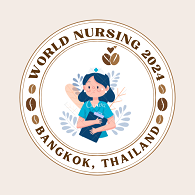Sessions
Session on Harnessing Technology for Patient Care
Harnessing technology for patient care has become increasingly important in the healthcare industry. With advancements in digital technologies, healthcare professionals now have access to a wide range of tools and platforms that can greatly enhance the quality of patient care and improve outcomes. One of the key areas where technology is making a significant impact is in patient monitoring. Wearable devices, such as smartwatches and fitness trackers, enable real-time tracking of vital signs, activity levels, and sleep patterns. This data can be transmitted to healthcare providers, allowing them to monitor patients remotely, detect potential health issues early on, and provide timely interventions. Another aspect of technology in patient care is telemedicine. Virtual consultations and remote healthcare services have become increasingly popular, especially in situations where in-person visits may be challenging or not possible. Telemedicine allows patients to connect with healthcare professionals through video calls, phone consultations, or secure messaging platforms, enabling access to healthcare from the comfort of their own homes. Electronic health records (EHRs) have revolutionized the way patient information is stored and accessed. EHRs enable healthcare providers to have a comprehensive view of a patient's medical history, including previous diagnoses, medications, and test results.
Session on Patient-Centered Care: Beyond the Basics
Patient-centered care goes beyond the basics of traditional healthcare delivery by placing the patient at the forefront of their own care journey. It emphasizes the importance of involving patients in decision-making, understanding their unique needs, and tailoring treatment plans to meet those needs. In a patient-centered care approach, healthcare providers aim to build a strong partnership with patients, fostering open and honest communication. This involves actively listening to patients, acknowledging their concerns, and respecting their values and preferences. By actively involving patients in their care, healthcare providers can ensure that treatment plans align with the patient's goals and values, leading to improved patient satisfaction and outcomes.
Patient-centered care also recognizes the importance of addressing the physical, emotional, and psychosocial aspects of a patient's well-being. It takes into account the individual's cultural background, beliefs, and personal circumstances, recognizing that these factors can significantly impact their healthcare experience. By providing holistic care that encompasses all these aspects, healthcare providers can better support patients in their journey towards wellness.
Session on Interprofessional Collaboration: Optimizing Healthcare Teams
Interprofessional collaboration is vital in optimizing healthcare teams and delivering high-quality patient care. It involves healthcare professionals from different disciplines working together, sharing knowledge, and collaborating to provide comprehensive and coordinated care. Effective interprofessional collaboration brings together the expertise and perspectives of various healthcare professionals, such as doctors, nurses, pharmacists, therapists, and social workers. By breaking down professional silos and fostering open communication, healthcare teams can improve patient outcomes, reduce errors, and enhance the overall quality of care. Interprofessional collaboration promotes a patient-centered approach, where the focus is on providing holistic care that addresses all aspects of a patient's health and well-being. Through shared decision-making and coordinated care planning, healthcare professionals can ensure that patients receive seamless and integrated care throughout their healthcare journey. By working collaboratively, healthcare professionals can also learn from one another, exchange best practices, and enhance their own professional development. This interdisciplinary learning environment promotes a culture of continuous improvement and innovation in healthcare delivery.
Session on Promoting Health and Preventing Diseases
Promoting health and preventing diseases is a cornerstone of healthcare practice, focusing on proactive measures to improve overall well-being and reduce the burden of illness. This approach emphasizes the importance of education, early detection, and lifestyle modifications to prevent the onset of diseases and promote optimal health. Health promotion initiatives aim to empower individuals and communities to take control of their health by providing information, resources, and support. This can involve promoting healthy behaviors such as regular physical activity, balanced nutrition, smoking cessation, and stress management. By encouraging positive lifestyle choices, healthcare professionals can help prevent chronic diseases such as cardiovascular conditions, diabetes, and certain cancers. Additionally, preventive measures such as vaccinations, regular screenings, and health check-ups are essential in detecting potential health issues at an early stage. Early detection enables timely interventions and treatments, improving outcomes and reducing the severity of illnesses. Health promotion and disease prevention efforts also extend beyond the individual level to encompass community-wide initiatives. These can include awareness campaigns, policy changes, and public health interventions aimed at creating supportive environments and addressing social determinants of health.
Session on Ethical Dilemmas in Nursing Practice
Ethical dilemmas are an inevitable part of nursing practice, where nurses often face complex situations that require careful consideration of ethical principles. These dilemmas arise when there is a conflict between different ethical values, duties, or obligations. One common ethical dilemma in nursing practice is balancing patient autonomy and beneficence. Nurses must respect the autonomy and right to self-determination of their patients while also ensuring their well-being and promoting the best possible outcomes. This can be challenging when a patient's decision may not align with what healthcare professionals believe is in their best interest.
Confidentiality and privacy are also crucial ethical considerations. Nurses must safeguard patient information and maintain confidentiality, but they may face dilemmas when there is a need to disclose information for the greater good, such as in cases of suspected abuse or public health concerns. Resource allocation is another ethical challenge, especially in situations where there are limited resources. Nurses must navigate the ethical principles of justice and fairness when determining how to allocate resources and provide equitable care to all patients. End-of-life care presents ethical dilemmas as well, with decisions regarding withholding or withdrawing life-sustaining treatments, managing pain, and honoring patient preferences. Nurses play a vital role in advocating for the patient's wishes while considering the principles of beneficence and non-maleficence.
Session on Leadership and Management in Nursing
Leadership and management play vital roles in nursing, ensuring the delivery of high-quality patient care and the efficient operation of healthcare settings. In nursing, leadership involves inspiring and motivating a team, setting a clear vision, and guiding others towards achieving common goals. Effective nurse leaders are able to inspire trust, promote collaboration, and foster a positive work environment. On the other hand, nursing management focuses on the organizational and administrative aspects of healthcare. Nurse managers oversee staffing, resource allocation, budgeting, and policy implementation. They are responsible for ensuring that nursing staff have the necessary resources, training, and support to provide optimal patient care. Both leadership and management skills are essential for nursing professionals, regardless of their position or level of experience. Strong leadership and management abilities enable nurses to advocate for patients, manage conflicts, and make informed decisions in rapidly changing healthcare environments.
Leadership and management in nursing require a combination of technical, interpersonal, and communication skills. Effective nurse leaders are able to inspire, communicate effectively, and promote teamwork among their colleagues. They must also possess problem-solving skills, strategic thinking, and the ability to adapt to new challenges.
By embracing leadership and management principles, nurses can contribute to positive organizational cultures, enhance patient outcomes, and drive improvements in healthcare delivery. Continuous professional development and opportunities for leadership training are essential in preparing nurses to assume leadership and management roles and contribute to the advancement of the nursing profession.
Session on Mental Health and Wellness for Nurses
Mental health and wellness are crucial aspects of nursing practice that require attention and care. Nurses face unique stressors and challenges in their roles, making it essential to prioritize their own well-being. Promoting mental health and wellness among nurses involves creating a supportive work environment, implementing strategies for stress management, and providing access to resources for self-care and mental health support. By prioritizing mental health, nurses can enhance their overall well-being, reduce burnout, and provide better care to their patients. Investing in mental health and wellness for nurses is not only essential for their own sake but also for the overall quality of healthcare delivery.
Session on Infection Control and Preventing Healthcare-Associated Infections
Infection control and preventing healthcare-associated infections (HAIs) are critical priorities in healthcare settings. Healthcare professionals, including nurses, play a crucial role in implementing effective infection control measures to safeguard patient safety. This involves adhering to strict hand hygiene practices, utilizing personal protective equipment, implementing proper sterilization and disinfection protocols, and promoting vaccination among staff and patients. Nurses also educate patients and their families about infection prevention measures, monitor and manage potential outbreaks, and collaborate with multidisciplinary teams to develop infection control strategies. By prioritizing infection control, nurses contribute to reducing the risk of HAIs, promoting patient well-being, and maintaining a safe healthcare environment.
Session on Cultural Competence in Nursing Practice
Cultural competence is essential in nursing practice, as it involves understanding and respecting the diverse cultural backgrounds, beliefs, and values of patients. Nurses who demonstrate cultural competence are able to provide culturally sensitive care, improve communication, and foster positive patient-provider relationships. They strive to eliminate cultural biases and stereotypes, promote cultural humility, and tailor care to meet the unique needs of individuals from different cultural groups. By embracing cultural competence, nurses can enhance patient outcomes, reduce healthcare disparities, and promote health equity. It is a key component of providing patient-centered care and ensuring that healthcare services are accessible and inclusive for all individuals, regardless of their cultural backgrounds.
Session on Palliative and End-of-Life Care
Palliative and end-of-life care focuses on providing compassionate support and comfort to individuals facing serious illnesses or nearing the end of their lives. It aims to improve the quality of life for patients and their families by managing physical symptoms, addressing psychological and emotional needs, and offering spiritual and social support. Nurses play a crucial role in palliative and end-of-life care, providing holistic care, facilitating open and honest communication, and promoting dignity and respect. They collaborate with interdisciplinary teams, advocate for patients' wishes, and ensure that care aligns with the individual's goals and values. By embracing palliative and end-of-life care principles, nurses can provide compassionate care, alleviate suffering, and support patients and their families through challenging times.
Session on Emergency and Disaster Preparedness in Nursing
Emergency and disaster preparedness is a critical aspect of nursing practice, as nurses are often at the forefront of responding to emergencies and providing immediate care. They play a crucial role in planning, training, and coordinating emergency response efforts within healthcare settings. Nurses are trained to assess and triage patients, administer life-saving interventions, and support patients and their families during times of crisis. They collaborate with interdisciplinary teams, follow established protocols, and stay updated on emergency management practices. By prioritizing emergency and disaster preparedness, nurses contribute to saving lives, mitigating the impact of emergencies, and ensuring the safety and well-being of both patients and healthcare professionals.
Session on Innovations in Nursing Education and Training
Innovations in nursing education and training are crucial for preparing nurses to meet the evolving healthcare needs of the future. These innovations aim to enhance the quality and effectiveness of nursing education, incorporating the latest advancements in technology, teaching methodologies, and evidence-based practices. From simulation-based learning and virtual reality training to interprofessional education and competency-based assessments, innovative approaches in nursing education foster critical thinking, clinical reasoning, and problem-solving skills. They also promote lifelong learning and adaptability in a rapidly changing healthcare landscape. By embracing innovations in nursing education and training, nurses can be equipped with the knowledge, skills, and competencies necessary to deliver high-quality, patient-centered care and contribute to advancing the nursing profession.
Session on Advancing Diversity and Inclusion in Nursing
Advancing diversity and inclusion in nursing is essential for creating a more equitable and representative healthcare workforce. It involves promoting equal opportunities for individuals from diverse backgrounds, including underrepresented racial and ethnic groups, LGBTQ+ communities, and individuals with disabilities. By embracing diversity, nursing can better reflect the populations it serves and foster culturally competent care. Inclusive nursing environments respect and value the contributions of all nurses, creating a sense of belonging and empowerment. It is crucial to implement policies that support diversity and inclusion, promote education and awareness, and address barriers to equal representation. By advancing diversity and inclusion in nursing, we can strive for equitable healthcare outcomes and foster a more inclusive society as a whole.
Session on Nursing Research and Evidence-Based Practice
Nursing research and evidence-based practice are integral components of delivering high-quality and patient-centered care. Nursing research generates new knowledge, identifies best practices, and addresses gaps in healthcare. By conducting rigorous research studies, nurses contribute to advancing the science and practice of nursing. Evidence-based practice involves integrating the best available research evidence, clinical expertise, and patient preferences to inform decision-making and guide nursing interventions. By incorporating evidence-based practice, nurses can improve patient outcomes, enhance the effectiveness of interventions, and ensure that care aligns with current best practices. Nursing research and evidence-based practice create a foundation for delivering evidence-informed, safe, and effective care to patients, promoting continuous improvement and innovation in nursing practice.
Session on Legal and Ethical Aspects of Medication Administration
Understanding the legal and ethical aspects of medication administration is crucial for nurses to ensure patient safety and maintain professional integrity. Nurses are responsible for administering medications accurately, following legal regulations, and adhering to ethical standards. This includes verifying medication orders, correctly calculating dosages, and maintaining documentation integrity. Nurses must also respect patient autonomy, obtain informed consent, and protect patient confidentiality. Understanding legal and ethical frameworks, such as the Nurse Practice Act and professional codes of conduct, guides nurses in making ethical decisions and navigating complex situations. By upholding legal and ethical principles in medication administration, nurses contribute to safe and ethical care delivery, promoting trust and maintaining the integrity of the nursing profession.
Session on Geriatric Nursing: Promoting Healthy Aging
Geriatric nursing plays a vital role in promoting healthy aging and providing specialized care to older adults. Geriatric nurses possess a deep understanding of the unique physical, psychological, and social needs of elderly individuals. They focus on preventive measures, managing chronic conditions, promoting independence, and improving overall quality of life. Geriatric nurses assess cognitive function, screen for age-related health concerns, and implement interventions that address the specific needs of older adults. They collaborate with interdisciplinary teams, including geriatricians, social workers, and physical therapists, to develop comprehensive care plans. By specializing in geriatric nursing, professionals contribute to enhancing the health and well-being of older adults, enabling them to age with dignity and optimal health.
Session on Pediatric Nursing: Caring for Children and Families
Pediatric nursing involves caring for infants, children, and adolescents, as well as supporting their families throughout their healthcare journeys. Pediatric nurses possess specialized knowledge and skills to provide comprehensive and age-appropriate care. They monitor growth and development, administer vaccinations, manage acute and chronic conditions, and promote health and wellness in pediatric populations. Pediatric nurses prioritize family-centered care, working collaboratively with parents and caregivers to ensure the well-being of the child. They create a comforting and supportive environment, advocate for the needs of their young patients, and provide education and guidance to empower families. By specializing in pediatric nursing, professionals contribute to the health and happiness of children and families, fostering their growth and development in a compassionate and nurturing manner.
Session on Holistic Nursing: Nurturing Mind, Body, and Spirit
Holistic nursing embodies a comprehensive approach to patient care that recognizes the interconnectedness of mind, body, and spirit. Holistic nurses focus on nurturing the whole person and promoting well-being on multiple levels. They prioritize individualized care, considering not only physical symptoms but also emotional, social, and spiritual aspects of health. Holistic nursing integrates complementary and alternative therapies, stress reduction techniques, and lifestyle interventions to support healing and optimal health. By embracing holistic principles, nurses can foster a therapeutic environment, enhance patient outcomes, and promote self-care and self-empowerment. Holistic nursing recognizes the inherent worth and dignity of each individual and aims to provide care that nurtures and supports the whole person in their healing journey.
Session on Nursing in Global Health
Nursing in global health involves addressing healthcare challenges on a global scale and promoting health equity across borders. Global health nurses work in diverse settings, often in resource-limited areas, to provide essential care, education, and advocacy. They collaborate with local communities, governments, and international organizations to develop and implement health programs, address infectious diseases, promote maternal and child health, and improve access to healthcare services. Global health nurses also play a crucial role in disaster response and humanitarian efforts. By working in global health, nurses contribute to reducing health disparities, improving health outcomes, and fostering sustainable development worldwide. They bring their expertise, compassion, and cultural sensitivity to positively impact the lives of individuals and communities across the globe.
Session on Quality Improvement and Patient Safety in Nursing
Quality improvement and patient safety are paramount in nursing practice, ensuring the provision of safe, effective, and patient-centered care. Nurses play a vital role in identifying and addressing potential risks, improving healthcare processes, and implementing evidence-based practices. They actively participate in quality improvement initiatives, conduct root cause analyses, and contribute to the development of safety protocols and policies. By promoting a culture of continuous improvement, nurses enhance patient outcomes, reduce medical errors, and create a safe environment for both patients and healthcare providers. Quality improvement and patient safety efforts in nursing are crucial for delivering high-quality care, building trust with patients, and advancing the overall quality of healthcare systems.















